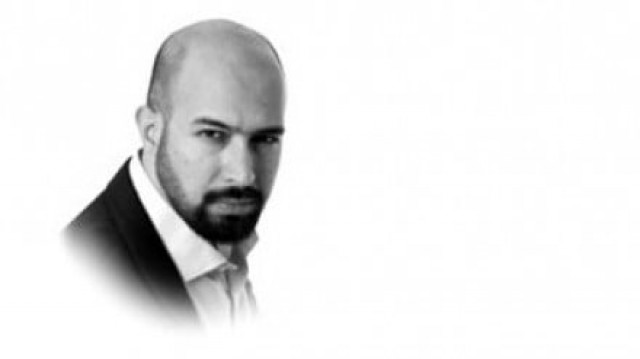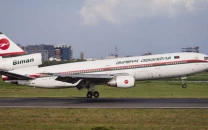The evolution of our media

The evolution of our media
Tracing the media’s inherent biases that are related to its structural efficiencies and/or deficiencies, I questioned the media’s use of language (English vs Urdu) in targeting, developing and exploiting preordained opinions among sectors of the polity and also presented evidence of how its family-owned nature allows for ‘personal’ agendas to be inducted into the national information mainstream.
This ‘internal focus’ of the Pakistani media is another rare yet critical occurrence that needs to be studied. Often, this self-obsession also manifests itself through the clear political alignments and re-alignments of media houses with different special interest groups and institutions that govern Pakistan: the establishment.
A case in point is the media’s complicated relationship with the military, which is considered by many as the ‘state within the state’ and most powerful and organised institution. That’s right, journalists and generals, working together, advertently and inadvertently. During the last days of former president Pervez Musharraf, the media took on the army by leading the charge against the former general’s government.
While thousands scoffed at the bias, millions lauded this pro-democracy power play. However, after Musharraf resigned as president the media warmed up to the military albeit through a different and perhaps more commercial dynamic.
It readily absorbed a surge in the military’s public relations expenditure as billions of rupees worth of airtime was purchased by the armed forces on all mainstream channels during last summer’s Swat offensive when there were alarming reports that the Taliban were a 100 kilometres from Islamabad.
This investment, along with carefully placed news stories about Taliban atrocities that were a product of trips ‘arranged’ by the army for journalists to the warzone, compounded by an actual increase in terrorist activities across the country as the militants ‘overextended’ operations into Pakistan’s urban centres, managed to turn the tide in the media in favour of the military.
Suddenly, mainstream news channels that had been ambivalent at best about the war effort were airing patriotic songs and stories about the gallant soldiers of the Pakistan army. Military funerals never aired on national television before, even though the army has been taking casualties for several years were now being timed for live broadcast coverage.
The language used by the media changed as well, of course; ‘militants’ and ‘extremists’ were now, unequivocally, ‘terrorists’. Not since the blitz of mainstream American media after 9/11 which played a critical role in empowering the Bush administration to invade Afghanistan and Iraq have I witnessed such a ‘pro-establishment’ editorial shift in the media.
Although engaged in the conflict since 2001, Pakistan, it seemed, had finally gone to war. Serving with Dawn News, witnessing this sudden U-turn was significantly more dramatic and perhaps even bizarre. Stories from freshly hired ‘defence connection’ correspondents were now leads. Our broadcast run-down was dominated by ISPR-generated briefs which we were made to assume had the highest editorial sanctions.
It was quite a turnaround. However, as Pakistan’s war on terror evolves, the local media continues to change its focus as well, presenting its views through another lens. While cross-border drone strikes by the US into the tribal areas bordering Afghanistan increase in frequency, the media’s support for the war effort in that theatre of conflict is shifting, powered mainly by what seems to be a wave of anti- American bias. Is this editorial shift developing due to US involvement in the affected area media-generated thumbs down for disappointing America’s noblesse oblige?
TO BE CONTINUED



















COMMENTS
Comments are moderated and generally will be posted if they are on-topic and not abusive.
For more information, please see our Comments FAQ